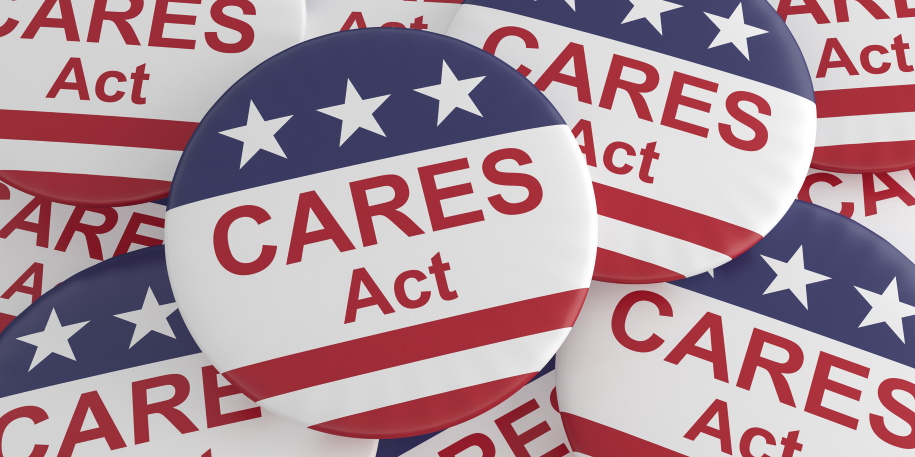Denver Debt Settlement Attorney Can Provide Options for Mortgage Arrears
The COVID-19 pandemic has brought countless challenges to day-to-day life beyond just the virus itself. Many people have lost their jobs, suffered pay cuts, or have wracked up considerable debt from medical bills, mortgage payments, and the other expenses that have cropped up during this challenging time.
For many people, their monthly mortgage payment, even in times of good fortune, is a considerable expense each month. Couple that with financial hardships brought on by the coronavirus, and you may be struggling, wondering your options for debt relief.
To provide some help, the United States government passed the Coronavirus Aid, Relief, and Economic Security (CARES) Act. Among other things, this act aimed to give financial assistance to citizens struggling to pay their bills, including their mortgage payments.
The CARES Act and Mortgages
In addition to providing help for student loans, unemployment assistance, and other financial needs, the CARES Act offers the option of “mortgage forbearance.”
Mortgage forbearance is a temporary pause on having to pay your mortgage. If you have suffered financially during COVID-19, you are eligible to request mortgage forbearance for up to a year in six-month increments.
Notify your mortgage servicer – the organization or entity to whom you make your mortgage payments – that you have experienced financial hardship due to COVID-19, whether it was directly or indirectly caused by COVID-19. (You don’t have to have had the COVID-19 virus to be eligible for mortgage forbearance.) You then may be approved for mortgage forbearance for up to a year if you renew it.
Will You Still Owe Those Mortgage Payments Later?
Yes. Mortgage forbearance does not just erase the money you owe during that time. It simply delays your being required to pay it.
Are There Fees or Penalties for Mortgage Forbearance?
No. You should not be charged fees or penalties if you are given mortgage forbearance. You also won’t be charged additional interest on the payments you owe (just the normal amount when you pay it).
Do You Then Owe a Lump Sum After Mortgage Forbearance Ends?
No. The money you weren’t paying during mortgage forbearance isn’t then suddenly due in a lump-sum payment once mortgage forbearance ends. If you have a $2,000/month mortgage, for instance, you won’t then immediately owe $24,000 after your year of mortgage forbearance ends.
What Are Your Options Once Mortgage Forbearance Ends?
After mortgage forbearance ends you’ll be expected to make your regular mortgage payments again. Talk with your mortgage servicer to determine how you’ll be paying off the payments you did not make during mortgage forbearance.
Some possible methods include:
- A deferral – This is when that money is further deferred and is then due at the end when you pay off your mortgage, refinance, or sell your home, rather than being due in the near future.
- A repayment plan – The money you didn’t pay during your mortgage forbearance is then parceled out over the future months, so you pay it off gradually.
- A modification – If you’re still struggling to make payments, work with the mortgage servicer to see if they can modify your future mortgage payment amount so you can then pay a smaller amount per month rather than your current rate. This likely means you’ll then have your mortgage for a longer period until you pay it all off.
Mortgage and Bankruptcy
For some homeowners, the arrears on their mortgage – the money that is past due that they still owe – may be too high. Perhaps your financial hardship has gotten to a point that ever being able to pay off your mortgage feels impossible.
A mortgage modification may help, but it may not be enough. Plus, if you had arrears prior to March 2020, you may not be eligible for the CARES Act mortgage modification.
If your mortgage debt is becoming overwhelming, it’s time to speak with an experienced bankruptcy law firm, such as Colorado-based The Wink Law Firm, who have helped countless clients get debt settlement help. They’ll address your specific situation and determine if bankruptcy is the appropriate choice to get debt relief from crushing mortgage payments.
Chapter 13 Bankruptcy
If your mortgage arrears are too high and you feel unable to pay them back, Chapter 13 bankruptcy may be the right option. Chapter 13 involves a three- to five-year repayment plan for your debts, where you may to repay some of your debt. This can greatly ease your financial burden and help you soon rebuild your financial life.
Bankruptcy is complicated and it is crucial you speak with an experienced and respected law firm, such as The Wink Law Firm, attorneys dedicated to bankruptcy law. They’ll explain the different types of bankruptcy, the requirements and expectations of each, and what you can do to get the debt relief specific to your needs.
Contact a Bankruptcy Attorney Today
The CARES Act has provided help for a lot of Americans struggling with financial hardships during the COVID-19 pandemic. However, for some, it won’t be enough if their debts have piled up too high or they were already heavily in debt prior to the start of the CARES Act. Speak with The Wink Law Firm, a Denver bankruptcy law firm, and understand your options to get the debt settlement help you need. The consultation is completely free. Call The Wink Law Firm at (720) 523-0620, or get started with our online questionnaire.

